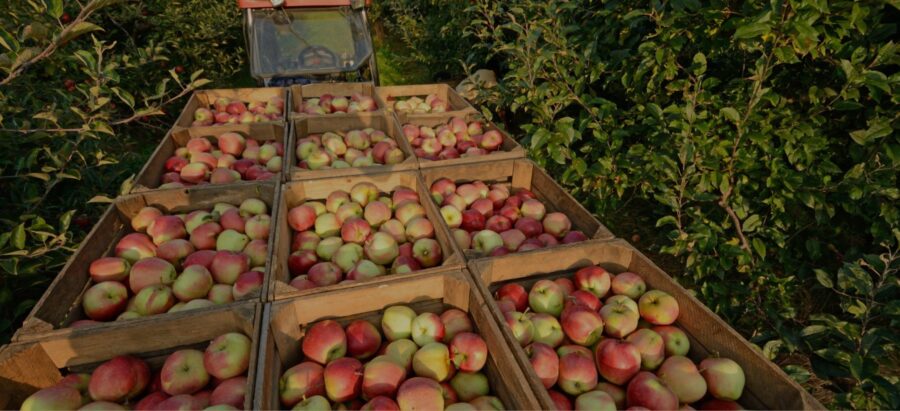A cursory glance at the variety of things in life make us wonder: why the disparity? Why do some people and things grow and get better with time, while others continue to fail?
Why does one person’s or group’s efforts bear outstanding fruition so quickly, whilst others remain unsuccessful, despite sustained effort and hard work?
We wonder: Why? What? How?
And the answer is: “Barakah” or Divine blessings.
Barakah in the Quran
Before we discuss what barakah is, let me pose a question.
If someone were to ask you, what is common between rainwater, the olive tree, the city of Makkah, the land surrounding Masjid Al-Aqsa, Egypt & Syria, and Prophets Abraham & Jesus, what would you think?
The answer is that Allah has described all of the above in the Quran with the word “mubarak”, meaning “blessed”.
The root meaning of this word lies in the Arabic letters ba’-ra’-kaf. The word “Barakah” means any kind of good, abundance, plenty, or prosperity bestowed by Allah, which continues with firmness and stability towards increase. (Lane’s lexicon)
In short, it means, long-term benefit bestowed by Allah.
Allah has used this word in the Quran to describe how he blessed Prophet Abraham, the lands of Egypt and Syria, and other inanimate things among His creation, such as the olive tree and rain.
Even after drinking milk, Prophet Muhammad would ask Allah to put barakah (blessing) in it. (Abu Dawud)
This indicates that people, plants, places on earth, and even inanimate things such as food items, can be divinely blessed. Barakah allows these to provide benefit and good to others, and be inherently pure and good themselves.
Types of Barakah
Sometimes, when Muslims send greetings to each other, they pray for Allah’s blessings to descend upon the recipients. At the end of every prayer, they also send blessings upon the deceased Prophets Muhammad and Abraham.
So the key questions are: how does one acquire barakah? And afterwards, how does one know that Allah has blessed them with His special “barakah”?
In order to gauge that, we can analyze those people and things that Allah and His messenger have described as “mubarak” in the Quran and Sunnah.
Take, for example, the places of Makkah, Egypt, Syria, and Bayt al-Maqdis (Jerusalem). It is clear that these places are blessed because Allah chose them to be peaceful sanctuaries of congregational worship. They have the birth and dwelling places of many of Allah’s Prophets, from Moses & Aaron, David & Solomon, Mary & Jesus, to Joseph & Muhammad.
Places where Noah built the first ark on Allah’s command. Moses pursued a fire and ultimately conversed with Allah. Prophet Abraham pelted Satan and built the Ka’bah with his son, Ismael. Joseph was appointed in Egypt over the government treasury after enduring the trials of youth. Jesus dwelled peacefully in a raised place in Damascus with his mother, Mary. Muhammad went upon the ascension to meet the past Prophets (peace be upon them all).
It is clear that these hot and arid lands were indeed blessed, as Allah sent so many of His Prophets to dwell in them. Today, they harbor sanctuaries where devotees congregate for worship. They have timeless landmarks that remind the world about milestones in the lives of Allah’s Prophets.
Similarly, milk is a blessed drink. It not only nourishes, but is also a source of other beneficial ingredients, such as cheese, butter, curd, and whey. In any form and use, it grants pure health and nourishment to mankind.
A believer can also determine how blessed he or she is, by gauging how much they are of benefit to others.
Do people feel positive, inspired, and motivated after spending time in their company? Do their righteous deeds lead to even better deeds, over time?
Are they productive, using all the resources that Allah has provided them, to produce beneficial good for mankind?
And does the benefit that they produce, last long?
How to Attain Barakah?
In order to attain barakah in life, it stands to reason that a believer should firstly strive to please Allah, in every aspect of it.
They should strive to keep their faith pure, and their actions righteous; aiming for sustained, gradual increase in both. This is the foremost lesson that we can learn from the stories of the Prophets, who were inherently blessed with barakah.
The second prerequisite of barakah is remaining firm and steadfast upon faith when the going gets tough. Barakah cannot be acquired without first braving the trials of faith that come only towards sincere believers.
When the Prophets overcame the monumental difficulties that they faced from people due to their faith, Allah granted them pious progeny, lofty deeds, high ranks, and other forms of long-term good.
The Prophets’ message and legacy have lived and benefited mankind, for hundreds if not thousands of years beyond their demise.
Now that is what you call “barakah”!
SOURCE: https://aboutislam.net/reading-islam/living-islam/long-term-good-barakah-in-the-light-of-quran-and-sunnah/
Post Views: 291


